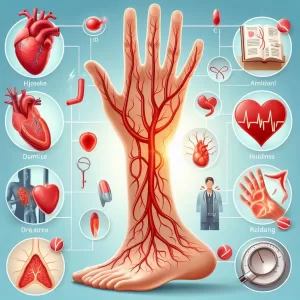Quels sont les effets secondaires de la chimiothérapie ?
[wp_show_posts id=””]
**Question: What are Chemotherapy Side Effects?**
**Answer:**
Chemotherapy, as an integral part of cancer treatment, often comes with a range of side effects. These side effects can vary based on the specific chemotherapy drugs used, the patient’s overall health, and the duration of treatment.
**Common Chemotherapy Side Effects:**
* **Nausea and vomiting:** The cytotoxic properties of chemotherapy drugs can affect the stomach lining, causing nausea and vomiting.
* **Hair loss:** Some chemotherapy drugs target rapidly dividing cells, including hair follicles, leading to temporary or permanent hair loss.
* **Bone marrow suppression:** Chemotherapy can reduce the production of blood cells in the bone marrow, resulting in anemia, neutropenia, or impaired clotting.
* **Immune system weakness:** Chemotherapy can weaken the immune system, increasing the risk of infections and reducing the body’s ability to fight off viruses and bacteria.
* **Diarrhea:** Certain chemotherapy drugs can damage the intestinal lining, causing dehydration and electrolyte imbalance.
* **Constipation:** Some chemotherapy drugs can slow down bowel movements, leading to constipation in patients.
**Managing Side Effects:**
Managing chemotherapy side effects is an important aspect of cancer care. Strategies include:
* **Anti-nausea medications:** Drugs like ondansetron (Zofran) and granisetron (Kytril) can help reduce nausea and vomiting.
* **Appetite stimulants:** Drugs seperti megestrol acetate and dronabinol can increase appetite and reduce food aversion.
* **Supportive care for hair loss:** Wigs, hats, or scarves can provide emotional comfort and support during hair loss.
* **Blood transfusions and growth factors:** Anemia or neutropenia may require blood transfusions or growth factor medications.
* **Anti-infectives:** Patients may need antibiotics or antifungal medications to prevent or treat infections.
**Importance of Reporting Side Effects:**
It is crucial for patients undergoing chemotherapy to report any side effects promptly. By doing so, healthcare providers can adjust treatment plans, provide supportive care, and monitor for potential complications. Open communication and close monitoring are essential for ensuring the well-being of cancer patients during and after chemotherapy treatment.
**Question: What are Chemotherapy Side Effects?**
**Answer:**
Chemotherapy, as an integral part of cancer treatment, often comes with a range of side effects. These side effects can vary based on the specific chemotherapy drugs used, the patient’s overall health, and the duration of treatment.
**Common Chemotherapy Side Effects:**
* **Nausea and vomiting:** The cytotoxic properties of chemotherapy drugs can affect the stomach lining, causing nausea and vomiting.
* **Hair loss:** Some chemotherapy drugs target rapidly dividing cells, including hair follicles, leading to temporary or permanent hair loss.
* **Bone marrow suppression:** Chemotherapy can reduce the production of blood cells in the bone marrow, resulting in anemia, neutropenia, or impaired clotting.
* **Immune system weakness:** Chemotherapy can weaken the immune system, increasing the risk of infections and reducing the body’s ability to fight off viruses and bacteria.
* **Diarrhea:** Certain chemotherapy drugs can damage the intestinal lining, causing dehydration and electrolyte imbalance.
* **Constipation:** Some chemotherapy drugs can slow down bowel movements, leading to constipation in patients.
**Managing Side Effects:**
Managing chemotherapy side effects is an important aspect of cancer care. Strategies include:
* **Anti-nausea medications:** Drugs like ondansetron (Zofran) and granisetron (Kytril) can help reduce nausea and vomiting.
* **Appetite stimulants:** Drugs seperti megestrol acetate and dronabinol can increase appetite and reduce food aversion.
* **Supportive care for hair loss:** Wigs, hats, or scarves can provide emotional comfort and support during hair loss.
* **Blood transfusions and growth factors:** Anemia or neutropenia may require blood transfusions or growth factor medications.
* **Anti-infectives:** Patients may need antibiotics or antifungal medications to prevent or treat infections.
**Importance of Reporting Side Effects:**
It is crucial for patients undergoing chemotherapy to report any side effects promptly. By doing so, healthcare providers can adjust treatment plans, provide supportive care, and monitor for potential complications. Open communication and close monitoring are essential for ensuring the well-being of cancer patients during and after chemotherapy treatment.
2 commentaires
Laisser un commentaire
Articles populaires








Side-Effects of Chemotherapy and How to Manage Them
### Chemotherapy Side Effects and Management